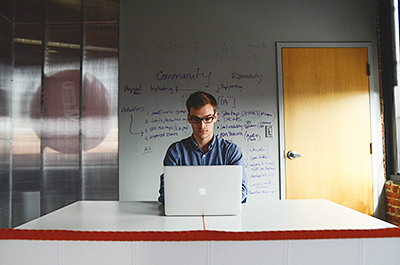 Sedentary behavior has long been associated with a laundry list of health problems: obesity, heart disease, type 2 diabetes and osteoporosis, to name a few. But new research from Deakin University in Australia suggests that prolonged sitting could also have an impact on your mental health.
Sedentary behavior has long been associated with a laundry list of health problems: obesity, heart disease, type 2 diabetes and osteoporosis, to name a few. But new research from Deakin University in Australia suggests that prolonged sitting could also have an impact on your mental health.
The findings suggests that anxiety risk increases as sedentary behavior increases. While further research is required, researchers say the connection between anxiety and sitting may be related to disturbances in sleep patterns, poor metabolic health and withdrawal from social relationships. It may also be possible that people with anxiety are more likely to engage in sedentary behavior as a coping mechanism.
“Even if you go for a run after work, if you sit for long periods of the day at your desk, or tend to sit on the couch for long periods after school or work, then you might potentially be at higher risk of anxiety,” said Megan Teychenne, the study’s lead researcher, in a statement.
Today, seven out of 10 adults in the United States say they experience stress or anxiety daily, according to the Anxiety and Depression Association of America.
Considering that anxiety can lead to decreased productivity – in addition to chronic diseases, such as heart disease and cancer – it’s key that professionals make a point to step away from their desks during the day, says Sandra Selby, program director at the Crim Fitness Foundation in Flint.
“I often feel overscheduled during the workday, so I literally put it on my calendar,” Selby says. “I set aside a half hour to go for a walk, which helps to clear my mind and refocus on the task at hand.”
Tom Hauer, Mindfulness Manager at the Crim Fitness Foundation, echoes that sentiment and recommends avoiding eating lunch at your desk. He also suggests implementing a “mindful minute” before meetings.
“Take a brief moment to take some breaths and center yourself,” Hauer said. “When you take the time to slow down a bit, you become more efficient and effective. Your heart rate slows down, your pulse rate slows down – it all falls together.”
